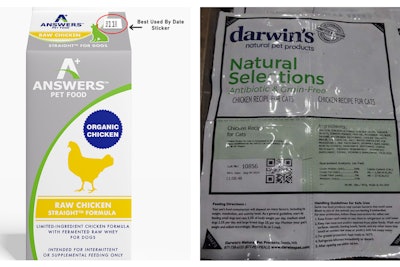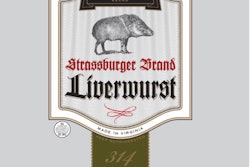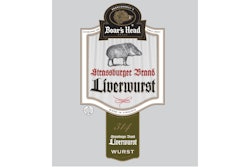The U.S. Food and Drug Administration (FDA) has issued warnings about pet food from Answers Pet Food and Darwin’s Natural Pet Products due to contamination with salmonella and Listeria.
In a recent release, the FDA announced five samples of Dawrin’s Natural Pet Products raw cat and dog food had tested positive for salmonella, and a sixth had tested positive for both salmonella and Listeria monocytogenes.
Answers Pet Food on September 22 issued a voluntary recall of three dog food products “out of an abundance of caution,” after FDA samples tested positive for salmonella and Listeria monocytogenes.
Arrow Reliance, the company that manufactures Darwin’s Natural Pet Products, has not recalled its affected products. Darwin's claimed in a September 20 release that it is confident its products are safe for pets, that salmonella and Listeria are not typically harmful to pets, and that the FDA public notice is “wholly unnecessary, and ultimately, based on flawed regulatory decision-making.”
The affected products from Answers Pet Food can be found here, and the affected products from Darwin’s Natural Pet Products are here.
Symptoms and Dangers of salmonella and listeria in pet food
Pets do not always display symptoms when infected with salmonella, but they can display vomiting, diarrhea, fever, loss of appetite, and/or decreased activity, the FDA explained in its warning for Darwin’s Natural Pet Products.
It is uncommon for pets to become infected with Listeria monocytogenes, but it is possible, the FDA also says in its release. Symptoms can include mild to severe diarrhea, anorexia, fever, nervous, muscular, and respiratory signs, pregnancy loss, depression, shock, and death.
The FDA notes concern for the potential of pet foods contaminated with salmonella and listeria to affect both human and animal health. It cites in its release previous cases in which humans were infected with salmonella from contaminated pet food.
The administration notes it is not aware of a documented case of a human Listeria infection stemming from pet food, but that once salmonella or Listeria are established in the animal’s gastrointestinal tract, the animal may continue to spread the bacteria.



















